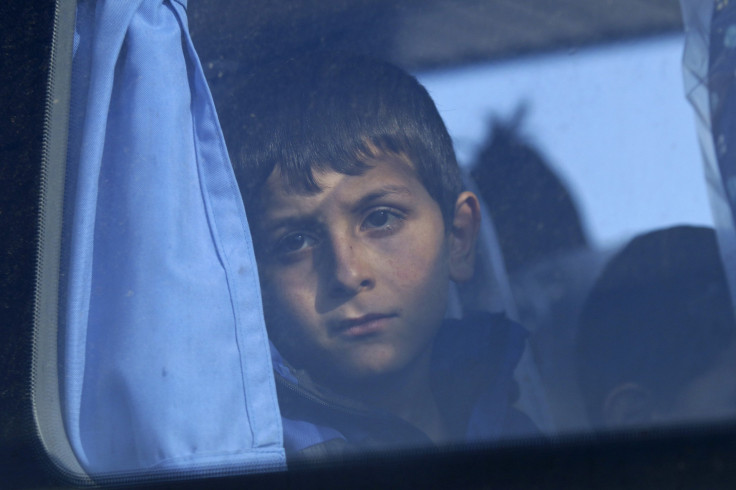EU Migration: European Union Not Doing Enough To Save Drowning Migrants, Claims Amnesty International Official [INTERVIEW]

More migrants than ever are attempting to cross the Mediterranean Sea from North Africa to Europe, resulting in a historic number of deaths. Migrants often pay hundreds, if not thousands of dollars to be packed onto overloaded, unsafe boats run by smugglers, who often abandon or rob them as they try to reach safe haven in the European Union. Most recently, 18 asylum seekers were found dead in a dinghy 150 miles from the Italian island of Lampedusa on Friday, according to Malta Today.
European leaders have done little to stop the crisis, said Amnesty International’s T. Kumar, the non-governmental organization's international advocacy director in Washington, D.C. In November, European Union Civil Liberties Committee Chairman Claude Moreas and Pope Francis both called for more to be done to save migrants.
But there’s an unresolved debate within the EU about how to handle such cases, including how and where to settle migrants and the role of each Southern European country in responding to the crisis. A resolution will be put to a vote at a European Parliament plenary session Dec. 15.
Many migrants are fleeing violence and a lack of economic opportunity in North Africa and Syria. The number of migrants has skyrocketed in 2014, with 53,000 crossing the central Mediterranean in recent months.
The EU last month launched joint operation Triton, which allocates 2.9 million euros ($3.5 million) a month for the deployment of seven vessels and three aircraft to patrol the central Mediterranean and Southern European coast to combat illegal crossings. Much of that effort has gone into rescuing stranded migrants and safely getting them to land to be further processed.
International Business Times spoke with Kumar of Amnesty International about what more could be done to help migrants crossing into Europe.
IBTimes: Could you give us a picture of the current situation around the Mediterranean?
T. Kumar: As of mid-September, around 2,500 people have died crossing the Mediterranean from North Africa and the Middle East to Europe, but it is hard to come to an accurate count because the activity is clandestine in nature.
IBTimes: There is a debate in Europe over how to handle the massive increase in migration. What do you think needs to happen immediately to potentially save the lives of thousands of migrants who make dangerous journeys to Europe?
Kumar: The EU is doing whatever they can, but we first want the EU to rescue and protect the refugees, then they can decide what to do with them, whether that’s deporting them or determining that they have legitimate claim to political asylum or any other action. But first thing is saving the people who are crossing.
IBTimes: Why has there been a rise in anti-immigrant sentiment in Europe, particularly with right-wing parties?
Kumar: It's nothing unusual for any country to become defensive and in some sense become protective of their country, especially when the economy is doing poorly and unemployment goes up. We have that problem even in this country, despite the fact that it is a country of migrants. That issue is there and we have to deal with that, but those people are not the majority.
IBTimes: Is Amnesty International directly involved in relief efforts?
Kumar: No, Amnesty is not a relief agency. We are keeping the pressure up on EU politicians and bringing visibility to this issue with reports. Our initial request with the EU is to save people who are crossing. They are taking a high risk to leave their country because the situations [there are] dire. As part of the international community, [European leaders] have to do this. That’s our request.
If there is no meaningful attempt to rescue these people, then more people will die. Additionally, more people will cross if the current situation in North Africa keeps getting worse. If it improves, they don’t have to leave their country. Unless it improves, [European authorities] can’t expect people not to flee, because they simply can’t live in their countries.
IBTimes: What does Amnesty International want to see in the long term?
Kumar: One thing that needs to happen is solving the economic difficulties in countries where people are emigrating, to see where the EU and others can try to stabilize those countries. They need to weigh that possibility. The second thing is more difficult, which is solving some of the internal struggles in these countries like Libya and Syria. This is difficult because foreign powers have little jurisdiction within these countries, so there’s only so much they can do without the consent of the leaders there.
© Copyright IBTimes 2025. All rights reserved.





















